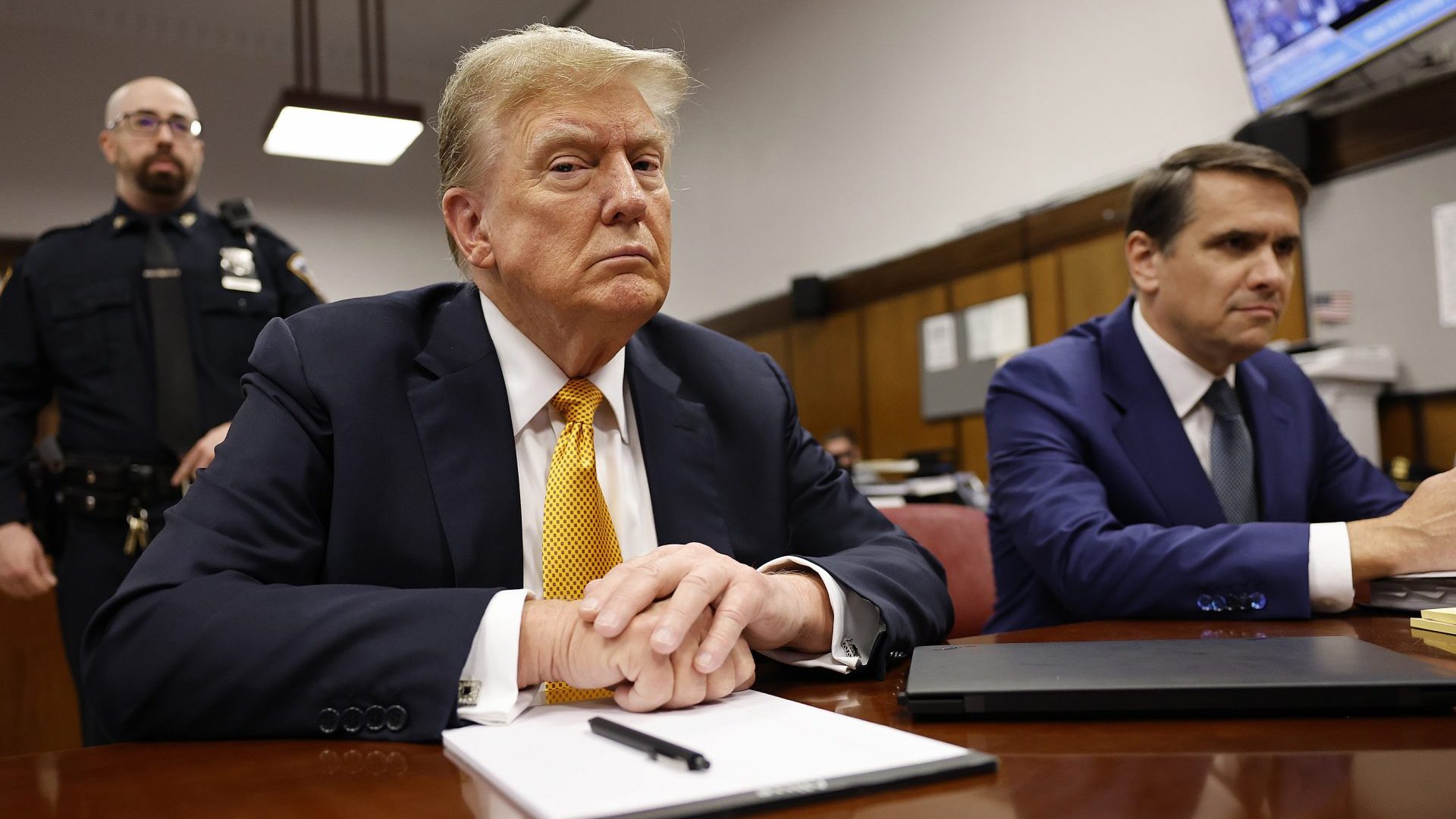Donald Trump won’t be sentenced for the hush money fraud he committed until after the US presidential election. That was the decision of the trial judge, who had originally been due to pass sentence next week, but has now scheduled November 26 as the date.
Trump was convicted in May on 34 counts of falsifying documents, not only to obscure the paper trail of payments from Trump to porn star Stormy Daniels, but to criminally alter the outcome of the 2016 election. The sentencing options range from four years in prison to probation.
Trump’s lawyers have tried every tactic to avoid sentencing – including trying to move the case to a federal court and reclassifying the fraud as a “presidential act” in order to take advantage of a Supreme Court ruling that Trump has immunity for stuff done while in office.
But was it ever likely that a former president, even one convicted of a jailable felony, would actually do time behind bars? And given the insurrectionary character of Trump’s politics, is it even wise for his opponents to seek this?
The judge’s reason for delaying the sentence was, ostensibly, to give Trump time to appeal other pending rulings on the extent of his immunity. He said a delay was the option which “best advances the interests of justice”.
The fact is, however, that should Trump win the November 5 election, any criminal sentence would be academic. He would have the power to pardon himself and – on top of that – has expressed his intent to override large parts of the constitution should he regain power.
In Project 2025, a document that he has formally disavowed but which key allies have worked on, the US far right has outlined a plan to place all Federal employees under direct, presidential control, adding the power to sack large numbers of neutral civil servants.
So the day that will decide whether Trump is effectively subject to the rule of law, and indeed whether the rule of law survives in America full stop, is election day – not the day scheduled for sentencing.
To recap the status of the four criminal cases against Trump is to survey the wreckage of the US justice system.
Case One: The Supreme Court handed Trump partial immunity over the charge of trying to rig the election outcome through fomenting insurrection on January 6, 2020. But prosecutors have revised their charges to focus on Trump’s acts as a politician, not president, and the case remains in limbo.
Case Two: Trump is accused of trying to overturn the election result in Georgia. But the case is going nowhere fast, and the Trump campaign is trying to unseat Georgia’s chief prosecutor, Fani Willis.
Case Three: Trump was facing multiple charges of conspiracy and breaches of the Espionage Act for mishandling secret documents stored at his luxury complex, Mar-a-Lago: but one of the judges Trump appointed while president has thrown this out on the basis that the appointment of a special prosecutor violated the Constitution. This, too, could fall foul of the Supreme Court decision.
And Case Four is the Stormy Daniels case, where punishment now depends not on the principles of justice, but on whether Trump can win in November.
And whether Trump can win in November does not depend on the popular vote, which he will lose; nor does it depend on winning the electoral college. Because by calling into question the Georgia case, Trump’s supporters have opened the route to a repeat of the same technique: which means appointing fake electors to the college and politically pressuring state officials to recognise them.
The problem is not, then, that America stands two months away from a potential presidential coup. It is that the coup is already under way. The farcical non-punishment of the crime he has been found guilty of is just a minor detail.
It is time for us, in the rest of the democratic west, to state clearly to our American friends that we have had enough. Enough of the far right clown circus. Enough of the appeasement of open criminality. Enough of an alt-right media ecosphere that launders Russian money and opinions.
They might justifiably reply: but what is the west without America? Who are Poland, Britain, Norway, Canada and France – with their puny armies and second-rank currencies – to tell America to get its house in order?
In return, we need to start to make the point: if your democracy has decayed to the point where only a lucky break on November 5 ensures the continuity of the rule of law, and indeed American commitment to the collective defence of Europe, it is not something we in Europe are going to rely on in the long term.
As we observe this fiasco from a distance, one of its most galling aspects is the nodding complacency of the US mainstream media, which treats the systematic decay of democracy, and the possibility of its collapse, as just a fact of life, to be visited in between breathless coverage of celebrities and the NFL seasons.
As they rack up Pulitzers for “investigations” that British newspapers might reward with a night out at a local curry house, the giants of American journalism seem incapable of landing a glove on the oligarchs, misogynists and outright fascist liars who have captured positions of corporate and political power.
With the fourth estate supine, the Supreme Court in the hands of explicit believers in absolute presidential power, and many legislative districts gerrymandered beyond meaningful democratic control, only the presidency stands in the way of a far right takeover of America. And the presidency is in peril.




